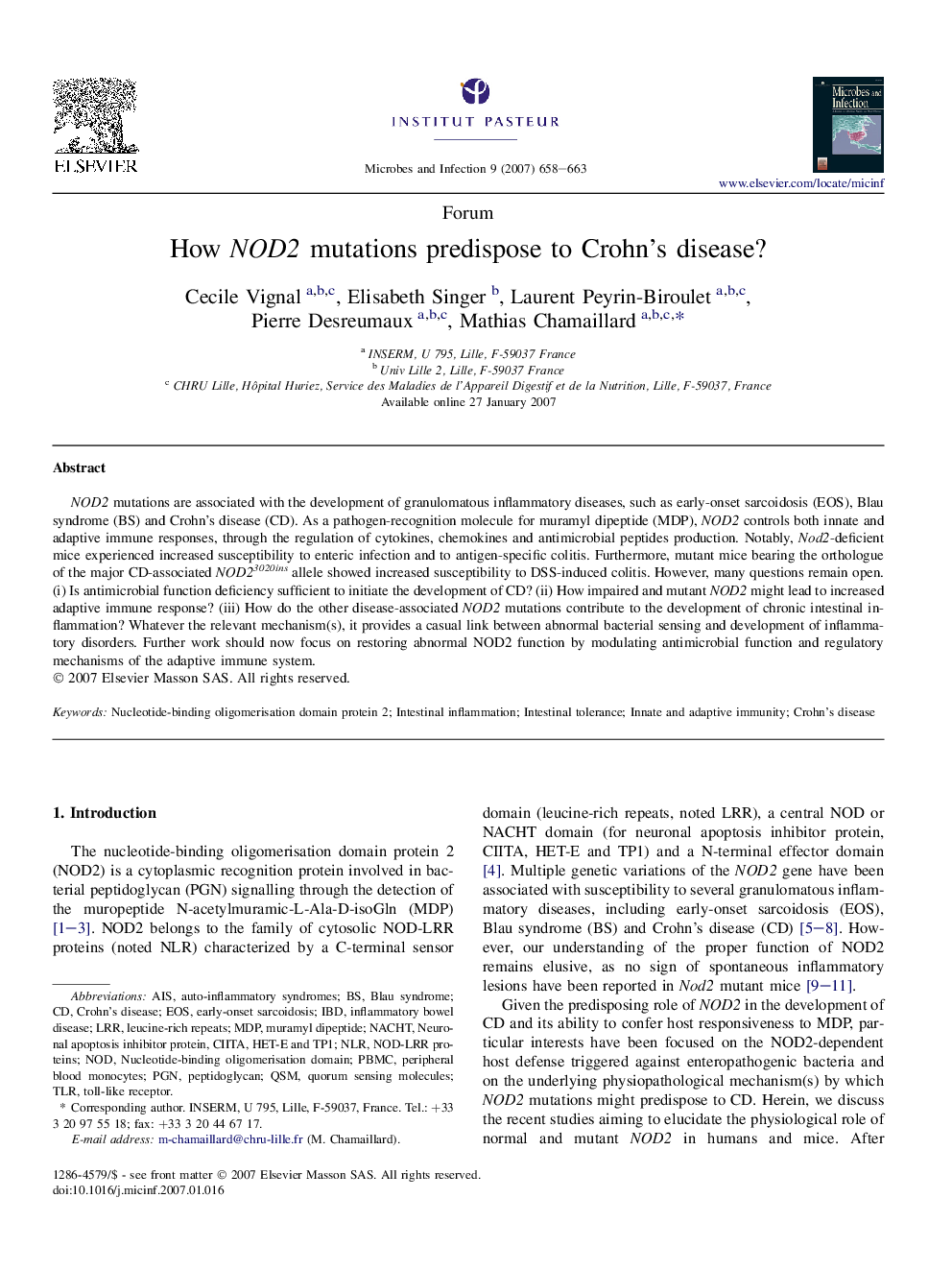| Article ID | Journal | Published Year | Pages | File Type |
|---|---|---|---|---|
| 3415536 | Microbes and Infection | 2007 | 6 Pages |
NOD2 mutations are associated with the development of granulomatous inflammatory diseases, such as early-onset sarcoidosis (EOS), Blau syndrome (BS) and Crohn's disease (CD). As a pathogen-recognition molecule for muramyl dipeptide (MDP), NOD2 controls both innate and adaptive immune responses, through the regulation of cytokines, chemokines and antimicrobial peptides production. Notably, Nod2-deficient mice experienced increased susceptibility to enteric infection and to antigen-specific colitis. Furthermore, mutant mice bearing the orthologue of the major CD-associated NOD23020ins allele showed increased susceptibility to DSS-induced colitis. However, many questions remain open. (i) Is antimicrobial function deficiency sufficient to initiate the development of CD? (ii) How impaired and mutant NOD2 might lead to increased adaptive immune response? (iii) How do the other disease-associated NOD2 mutations contribute to the development of chronic intestinal inflammation? Whatever the relevant mechanism(s), it provides a casual link between abnormal bacterial sensing and development of inflammatory disorders. Further work should now focus on restoring abnormal NOD2 function by modulating antimicrobial function and regulatory mechanisms of the adaptive immune system.
